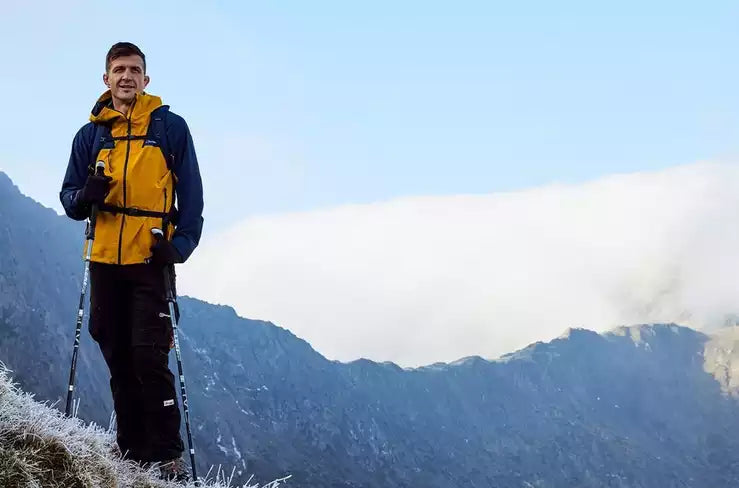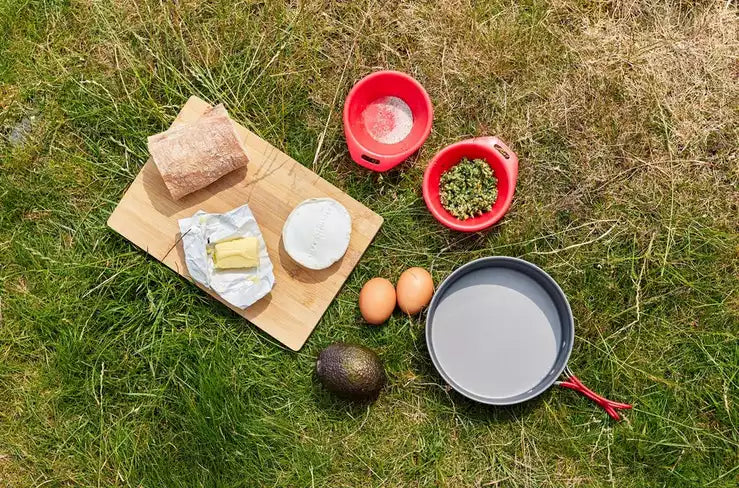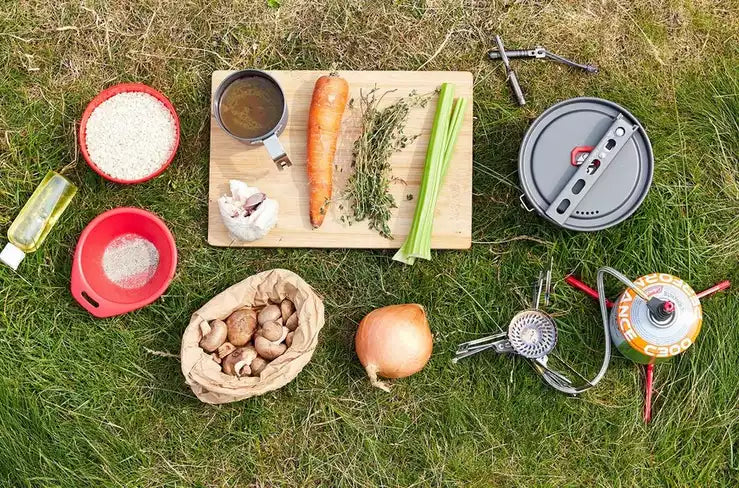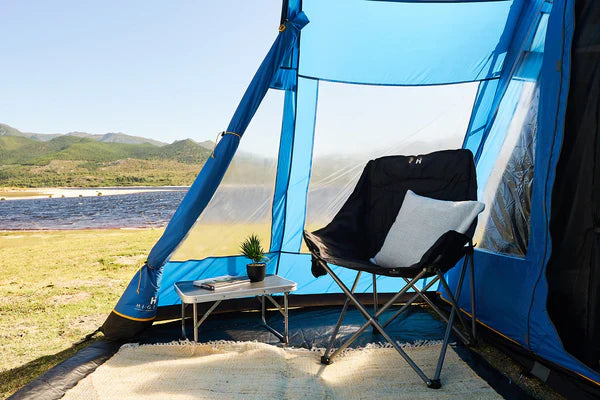Facing The Threat: Q&A with Sarah Roberts
Sarah Roberts is an eco-journalist, author, campaigner and an expert in animal behaviour. She has travelled the world to work with some of the world’s most dangerous and (in her opinion) misunderstood creatures. From swimming with sharks in Bimini to tracking grizzly bears in the Canadian wilds, she has proven herself hard to scare, except, perhaps, by the prospect of a regular day job.
In her own words “a mixture of Karl Pilkington and Steve Backshall” seasoned with scientific training, Sarah brings passion and expertise to conservation. Her positivity in the face of steep odds and grim predictions makes her an important voice in the eco-conversation.
Taking the chance to catch Sarah in a rare moment of down time, we quizzed her about the causes that inspire her and to compare shark bites. Spoiler: Hers are bigger.
How did you get involved in animal conservation, especially marine wildlife?
I’ve always loved animals. I grew up close to the Lancashire coast and swam competitively from a young age, so the love of the water was already there. Then there was a morbid curiosity about sharks; I used to read ‘true shark stories’ as a kid and all that fascination drew me towards a marine focus.
I started diving when I turned thirteen, and then I moved to Australia for a year when I was 18. Off the back of that I did my degree and specialised in sharks. But basically it was all about fear. If something scared me then I wanted to do it more. And sharks certainly scared me.
You spend a lot of time in schools educating children about the importance of marine conservation, especially the effects of plastic pollution. Are the children you speak with aware of the issue beforehand?
It’s different everywhere but I’ve noticed that proximity to the ocean can make a difference. Kids in schools closer to the ocean generally know a little bit more. On the whole children know that pollution is a bad thing, but they don’t necessarily know why. It’s quite a daunting thing to explain to a child, especially on the scale we are dealing with. Kids are so clever though. They are like sponges. They are open to conversations about this sort of thing.
You see it with my book, it tells you that the main character Stanley is “no ordinary jellyfish” but when it’s revealed that Stanley is a plastic bag, you see the penny drop. Once they understand they are up for changing their behaviour and trying to influence others. They are the easiest people to get on board with it.
It sounds like future generations are receptive to change then. But how do we go about engaging the current generation in conservation?
That's interesting to me because, ultimately, I’m not a fan of placing all the responsibility on kids. It’s great that they’re educated from a young age and they’re not going to knowingly exacerbate the problem, but the problem already exists, and it’s because of us and previous generations before us.
I find that millennials are the most open to debate and discussions on the subject. They are the generation that have been educated about the problem we are facing. We’re gunning to do our bit; we just often don’t know what our bit should be. It’s more challenging with earlier generations who haven’t had the exposure or the eco-education in school. For them it often comes down to seeing the evidence for themselves.
I try to introduce an educational undertone to my wildlife videos and content rather than lecturing people. Find the personal connection to the individual. Do they enjoy going on holiday to a place that will be affected? Do they like eating a certain kind of fish that may not be around anymore? Or is it just the case that their grandkids really like sharks?
Is the work you do with brands and media companies an important part of this engagement?
Massively. One of the biggest projects I’ve been involved with this year has been the Trash Isles campaign with Lad Bible. That was about looking into the situation in a more tongue-in-cheek way, and bringing celebrities onboard to support us, like Ross Kemp and Judi Dench. If you can get brands involved as well then you have the chance to develop a campaign that feels relevant and can have a huge reach.
There are so many reusable alternatives to plastics now. Can consumer choices make enough of a change?
Plastic alternatives can make a difference. But it’s tricky to get your head around the idea that the biggest problems may be something as small as microplastics and plastic fibres. They could be in your laundry detergent or in your face-wash. You have to change your mindset, back away from over-purchasing.
It isn’t as simple as we’d like it to be either. Sometimes plastic is the best alternative and other substances could actually have a greater negative impact. For example, a cotton bag-for-life would have to be used 130 times to reduce the energy-production to less than that of using and recycling a plastic bag.
This is a biggie. What do you think is the biggest threat to the planet at the moment?
Climate change and overpopulation. An expanding human population. We like to think there is lots of space left on this planet for people, but carrying capacity isn’t just about space, it’s about resources. The way we over-consume is a serious threat to the planet.
When I was in my first biology class at school the teacher drew a graph on the board that showed the population line going exponentially up and resources staying constant. In every natural scenario there would be a predator/prey relationship but we’ve taken out all natural predators. We’ve even beaten most disease. It’s a scary thought but we do need to talk more about it. If we were sensible about it we could control the problem ourselves rather than needing a crisis to impose controls. Population-growth, after all, is inextricably linked to climate change
You do work in both animal and marine conservation. Is there a project close to your heart that you’d love to work on in the future?
There are so many. I’m a massive champion of the underdog, of newly emerging issues. I loved being involved in the plastic pollution campaigns in the early days, and I’m excited that it’s got such a profile now, but there are other issues that we need to be aware of too. My interests are very much rooted in human-animal interactions. It's always interesting to spend time off the beaten track, to just be around nature and the wild. I’ve done that and I’ve seen that no matter where you go you can never escape human impact.
The animals and the places I love are under threat, so for me the focus is on highlighting as many issues as possible, and making people feel connected to those issues. We’ve become further and further removed from the world due to technology. I’d like to see how and whether technology could help increase our connection to the natural world without harming it.
You like working with dangerous animals. Are there any animals that you are afraid of?
Yes, loads. I was scared of sharks before I worked with them. I was scared of grizzlies. At the minute I’ve become fascinated by crocodiles, alligators and snakes. Being scared of something makes me want to work with it even more. It makes me feel most alive. We aren’t supposed to be indestructible and it’s good to be reminded that we’re not.
The thing that scares me most is ending up working in an office. But in the animal kingdom it’s the big predators I work with that scare me the most. Oh, and I don’t like lobsters. I had a bad experience with them when I was kid and now I can’t hold them.
Are there any blogs or books that you would recommend to our readers to help stay up-to-date?
Have a look at Two Stay Wild. A couple of my friends are on a crazy hiking adventure. They have just been to Kyrgyzstan and now they are in Sri Lanka. They are visiting organisations and NGOs along the way, like the Snow Leopard Trust, and writing about their work. They do really exciting hikes wherever they go too.
Love The Oceans, based in Mozambique, are doing great work. They have just released a load of Christmas jumpers to raise money for conservation in the local areas. They do a lot of work picking up plastic and looking at over-fishing
For more information on Sarah and her work, you can find her on Instagram, Twitter and YouTube, or at her website www.thisiscreature.com
Check back with Field Notes for future collaborations with Sarah.







